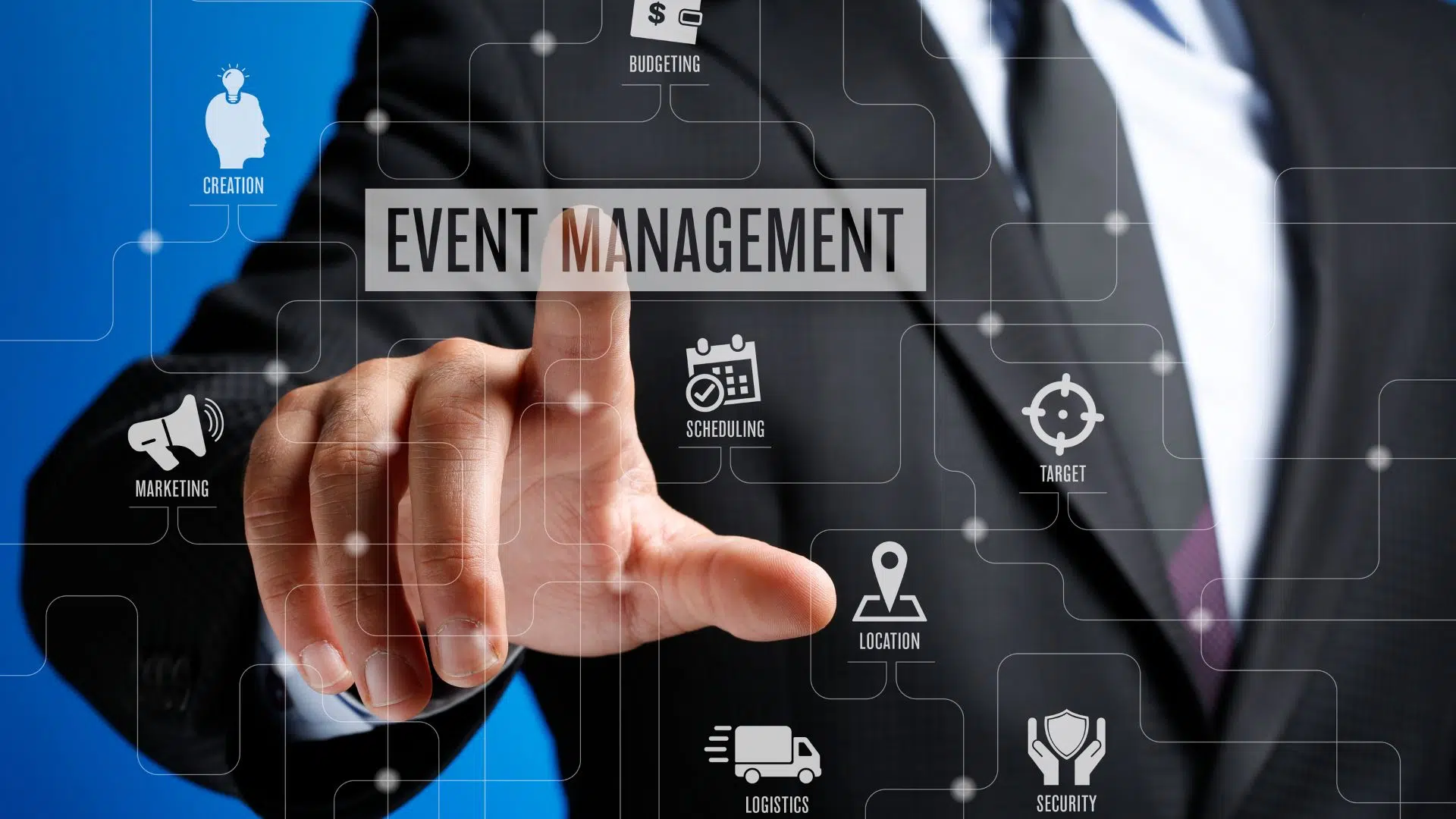A journey through digitalization, automation and artificial intelligence

The profession of event manager - a dream job for many, but one that involves far more than just the highlight of events. From conception to follow-up, event managers go through a complex process that requires both creative and organizational skills. But how will this profession develop in a world that is increasingly characterized by digitalization, automation and artificial intelligence?
Let's take a look into the future.
The evolution of event management
Event managers are the architects of experiences, transforming ideas into unforgettable events. But while the essence of the profession remains the same, the methods and tools used to implement them will undoubtedly change.
Digitalization: The revolution in planning and communication
Digitalization has already begun to transform event management. From virtual planning tools to social media marketing strategies, the digital era has opened up new horizons. In the future, event managers will increasingly rely on innovative software solutions to help them optimize the entire event process. From budgeting and site selection to guest management, digital platforms will play a central role. Virtual reality (VR) and augmented reality (AR) could even help to provide immersive previews of venues and offer guests an interactive experience long before the actual event takes place.
Automation: increasing efficiency through technology
Automation will not only simplify repetitive tasks, but also increase efficiency in event management. Chatbots, for example, could be used to answer frequently asked questions and facilitate communication with attendees. Workflow automation tools will allow event managers to save time and focus on more strategic aspects of event planning. The integration of IoT (Internet of Things) devices could even help to monitor events in real time and make adjustments to ensure a smooth experience.
Artificial intelligence: the future of personalization
Artificial intelligence (AI) will play a key role in tailoring events to individual needs. By analyzing data from past events and understanding attendee preferences, AI algorithms can provide personalized recommendations for content, seating arrangements, menus and more. Voice-activated assistants could be used during the event to provide real-time support and guidance. In addition, emotion analytics could help to understand the mood level of attendees and customize the event experience accordingly.
Effects on the profession of event manager
The integration of digitalization, automation and artificial intelligence will undoubtedly have an impact on the job description of event managers. Above all, it will make the work of event managers much more effective and easier. The event manager of the future will have better data at their disposal and use it effectively to make events better, safer, more sustainable and economically more valuable for companies.
Change in skills and competencies
Event managers will increasingly need digital skills to keep pace with changing technologies. In addition to creativity and organizational skills, knowledge in areas such as data analysis, software management and AI interactions will become increasingly important. However, the ability to understand and interpret human emotions will continue to be essential as the pursuit of personalized experiences grows in importance.
New working methods and roles
The traditional role of the event manager will change due to automation and the increasing integration of AI. New positions could emerge that focus on managing and optimizing technology platforms, while others could specialize in interpreting data analytics and tailoring events to the individual needs of attendees.
Challenges and opportunities
With new technologies come new challenges. Privacy and security become key concerns, especially when personal data is used to personalize events. In addition, concerns about dependency on technology may arise as human skills may be neglected in favor of automated processes.
The future of event management will undoubtedly be shaped by digitalization, automation and artificial intelligence. While these developments bring new challenges, they also offer immense opportunities for a more efficient, personalized and immersive event industry.
But how do we deal with the changes in event management in the conference hotel industry?
In the traditional conference hotel industry, event departments face the challenge of adapting to the changing demands and opportunities of event management. To help shape this evolution, they must adopt innovative strategies and technologies that meet their clients' needs while improving efficiency and customer experience. Here are some specific areas to focus on:
Integration of digitalization and technology
- Digital platforms for event planning: Conference hotels should invest in the implementation of digital platforms that allow customers to plan events online, receive quotes and make bookings. These platforms should be easy to use and contain all the necessary information and functions to facilitate the planning process.
- Virtual reality (VR) and augmented reality (AR): By using VR and AR technologies, conference hotels can offer virtual tours of their event spaces, provide potential customers with an immersive experience and help them make informed decisions.
- IoT devices and sensors: The integration of IoT devices and sensors in event spaces enables hotels to collect and analyze data in real time to optimize space usage, improve guest comfort and reduce costs.
Personalization and customer loyalty
- Data analytics and AI-powered recommendations: Event departments should use data analytics and AI algorithms to better understand their customers' behaviors and preferences and offer personalized recommendations for events, menus, room setups and more.
- Interactive communication tools: By providing interactive communication tools such as chatbots and mobile apps, conference hotels can improve customer service, answer questions quickly and support customers throughout the event process.
Training and development of employees
- Digital skills development: Event departments must ensure that their employees have the necessary digital skills and knowledge to work effectively with new technologies. This requires continuous training and education programs.
- Emotional intelligence and customer service: Despite the increased use of technology, the importance of interpersonal interaction and customer service remains essential. Employees should be trained in emotional intelligence to better understand the needs and expectations of customers and provide a first-class customer experience.
Security and data protection
- Privacy and security policies: With the increasing use of personal data for event personalization, conference hotels need to implement strict privacy and security policies to protect their customers' privacy and maintain trust.
- Cybersecurity: As event departments increase their use of digital platforms and technologies, they must also implement cybersecurity measures to protect data from cyberattacks and data breaches.
By focusing on these aspects and proactively responding to the changing demands of event management, event departments in the traditional conference hotel industry can gain a competitive edge and thrive in an increasingly digital and technological landscape.
The path has been paved and the future will show how successful the transformation of the industry has been.

